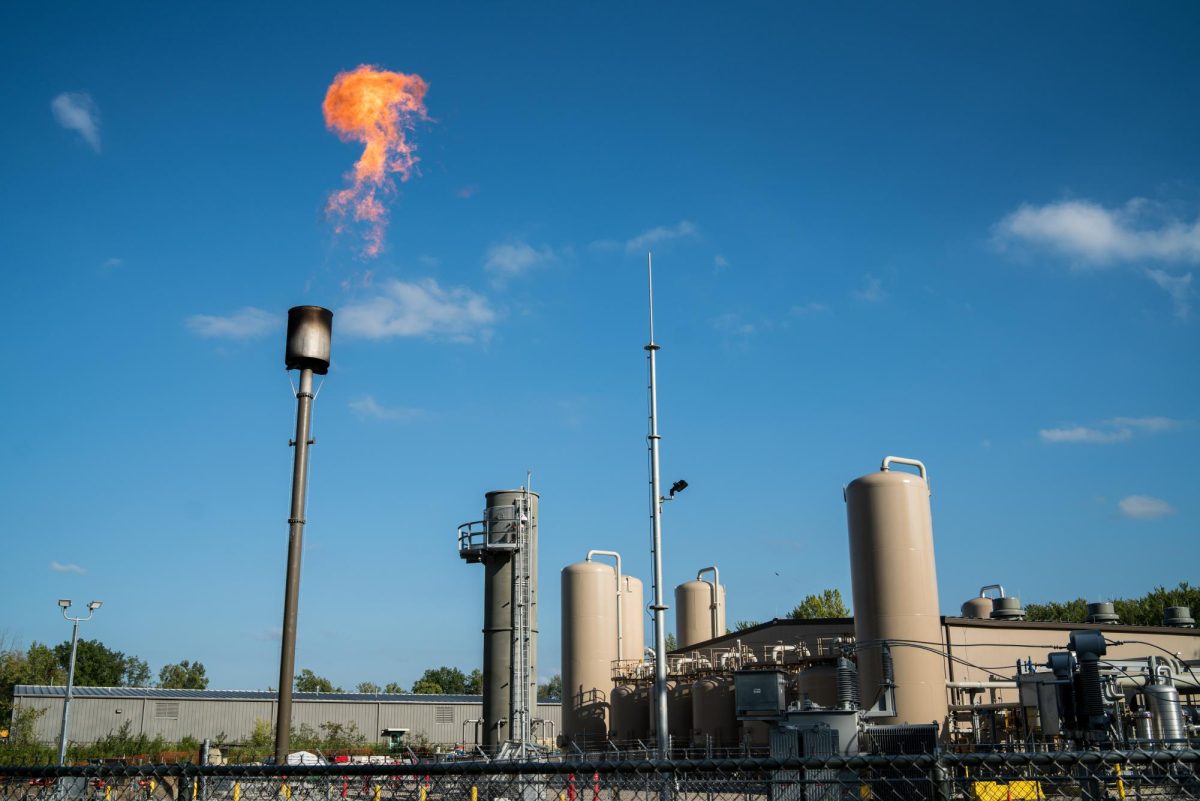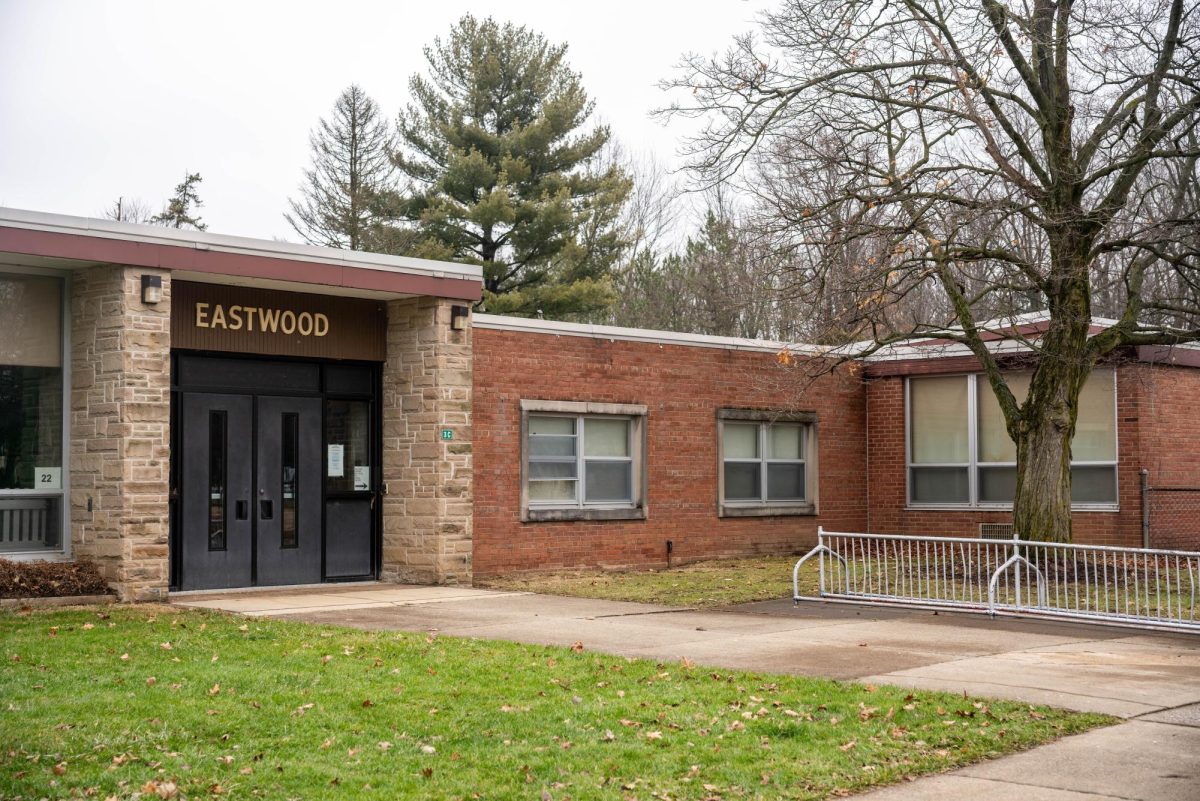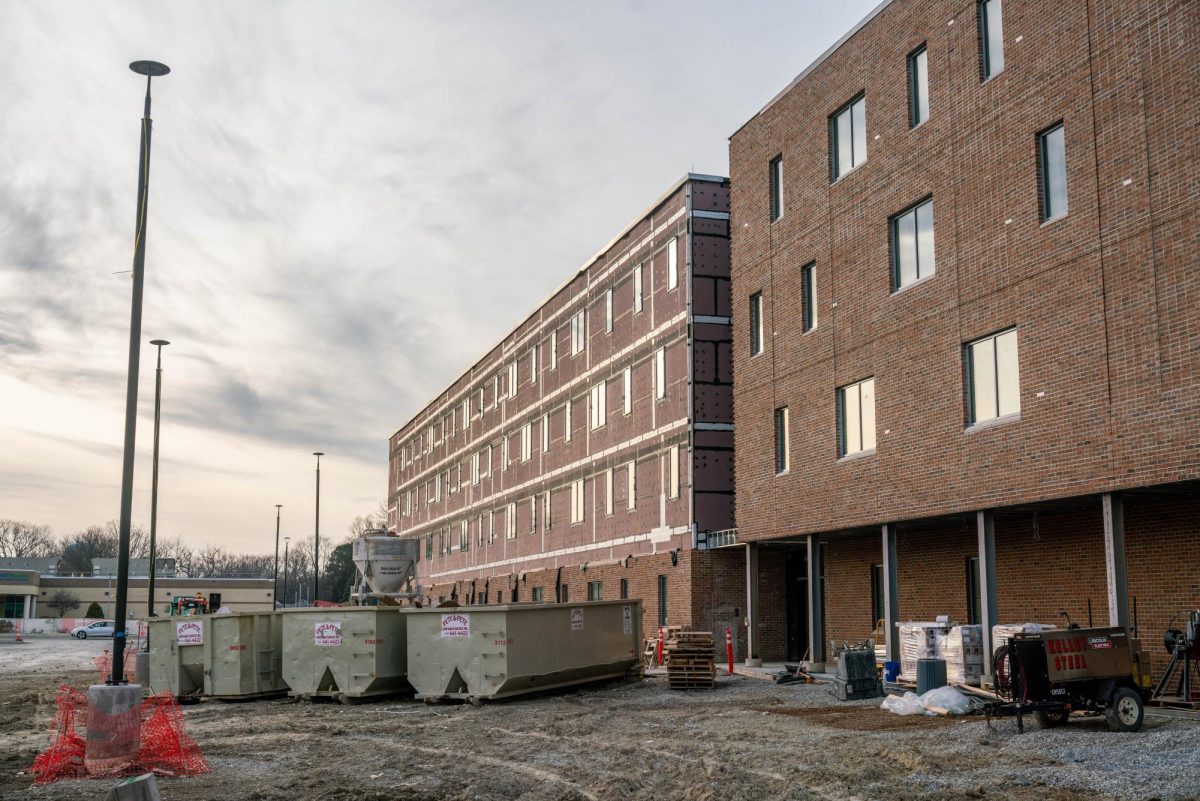The commissioning process began on the $80 million landfill gas processing plant, constructed by the energy company EDL. This process entails the facility running tests on equipment to make sure it is working as designed, before it can fully supply natural gas to vehicles and homes. This period, which began in mid August, is crucial.
The facility takes methane gas from the Republic Services Lorain County Landfill and purifies it to adhere to pipeline specifications. Methane from decomposing trash is converted to renewable natural gas. Gas is transported from the plant, located on 520 Hill Creek Drive, to the nexus pipeline, a 256-mile pipeline extension that runs through Oberlin city limits.
On Sept. 5, Oberlin residents were given the opportunity to comment on the EDL facility. Despite EDL not being on the Council’s agenda, eight community members took turns expressing their thoughts.
Residents expressed concern about the increase in noise levels, living near potential explosions, the light emitted by gas combustion, and the overall lack of communication from the City regarding the plant.
The facility plans to create approximately 1.6 million British thermal units per year of pipeline-quality renewable natural gas.
EDL has been a part of the community for over 20 years. In 2001, EDL began purchasing landfill gas from the Lorain County to create electricity on site, which was exported through the Oberlin Municipal Light and Power system.
EDL closed the electrical plant in 2022. That same year, EDL purchased $800,000 worth of electricity a year from the City to operate the new plant, which will cost Oberlin $500,000 to generate. The $300,000 revenue from the sale will go into the City’s general fund.
“EDL has been using landfill gas to generate electricity in Oberlin for a long time,”City Councilmember Ray English noted. “They’ve been doing it at a plant that is near the landfill. It’s actually very close to where this plant is. They have been burning landfill gas to drive generators to create electricity.”
“EDL is committed to being a responsive and responsible neighbor and we are working with our contractor to further mitigate any sound impacts, as well as ensuring we meet all regulatory requirements” EDL Chief Executive Officer Richard DiGia added.
Oberlin Fire Chief Robert Hanmer has worked with EDL concerning the commissioning process.
“The facility has gas detection sensors … and a number of fire detection systems, including … Very Early Smoke Detection Alarms, infrared detectors, smoke alarms, and a sprinkler system,” Hanmer wrote. “Any activation of any of the alarm systems will immediately shut the gas lines down and immediately notify the fire department to respond.”
Conservatory third-year Bradley Boatright has observed the impact of the facility on campus.
“It was 2 a.m. and my friends and I were walking to Bailey House, and the whole time the sky was like a little bit pink on one side,” Boatright said. “In front of [Stevenson Dining Hall], you could see it clearly, and it was really bright for a second. It was just above the horizon.”
Boatright’s observations can be attributed to the flare created by the combustion of gas, which is a means of disposing of excess landfill waste.
“Once the facility is supplying all the generated RNG to customers, the flare will run during shutdowns, maintenance or repairs,” DiGia noted. “Combusting biogas and RNG in a flare emits primarily carbon dioxide and water, thus reducing the greenhouse gas emissions equivalent from if the unburned gas was vented.”
John Elder, cofounder of environmental group Citizens for Safe and Sustainable Energy, which fought against the construction of the NEXUS pipeline in Oberlin, expressed his perspective on the gas processing plant.
“Although I was favorably impressed by EDL’s City Council presentation on the corporation’s demonstrated commitment to safe operations, the reality is that a gas leak or explosion could occur,” Elder wrote in an email to the Review. “Also, although an Oberlin friend reports that, during his brief observation of a similar EDL refinery in a residential neighborhood near Indianapolis, he could detect no foul odors, gas refineries certainly have a reputation of being pretty smelly operations. I suspect that the longer the refinery is in use the more leakage is likely to develop, including of invisible gasses such as methane, that contribute significantly to global warming.”
Oberlin Director of Planning and Development Carrie Porter commented on the importance of City Council’s next meeting concerning EDL.
“At the last meeting, representatives from EDL were there to hear all the residents’ complaints [and] questions,” Porter said. “EDL are supposed to come back to the Sept. 18 council meeting and give answers.”








